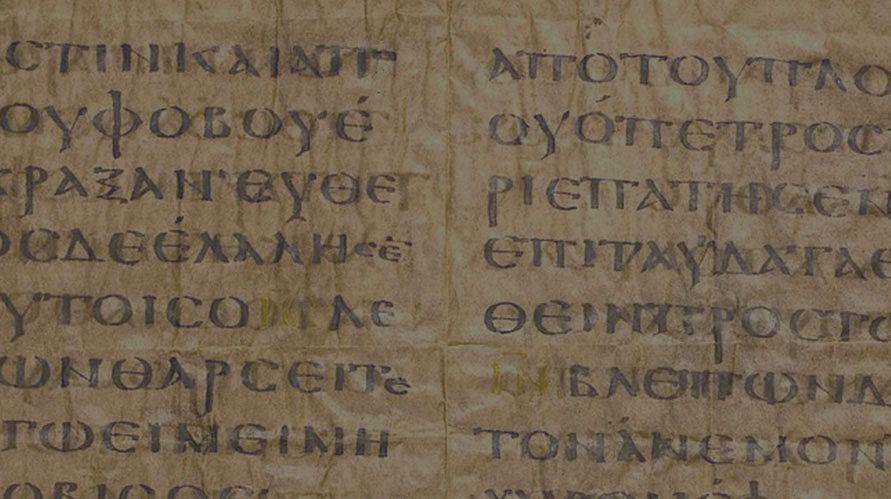Knowing Greek and Hebrew is not necessary to be able to understand the Bible. But some knowledge of the languages does pay dividends, especially when trying to follow commentaries which debate the meaning of a particular Bible verse. Knowing the original languages may not be essential in order to be a Bible teacher, but it is useful.
“But,” I hear you say, “since I don’t have the opportunity to invest in fulltime seminary education, or the self-discipline to plough through a textbook by myself, biblical languages are a luxury I’ll have to go without, right?”
Wrong! In our digital age, there are now some great online options for learning Greek and Hebrew.
BibleMesh
Introducing: BibleMesh Biblical Languages. BibleMesh is an online training institution with evangelical convictions which offers a number of courses (including several courses in Greek and Hebrew) from beginner level to advanced. I have personally greatly benefitted from both the Greek and Hebrew tracks.
The great strength of the courses, as I’ve already implied, is their combination of flexibility and accessibility.
Previously it was very difficult to learn biblical languages without a seminary education unless you were unusually self-disciplined. Now, with videos, vocabulary building software, quizzes, and opportunities to translate the text and compare your translation to the BibleMesh one, learning the biblical languages by yourself can be much more stimulating and interactive.
In terms of cost, the courses may be more expensive than textbooks, but they are far cheaper than a seminary education.
Translation Focus
There is another benefit to the BibleMesh teaching model: a heavy focus on translation, which is reflected in the structure of the course. Each module takes you through chunks of Scripture: for example, my current “Hebrew Reading 1” course takes you through the books of Jonah and Ruth. You go through the sections a verse at a time, and BibleMesh gives you a translation guide which enables you to translate the verse even without yet knowing all the grammar.
Relevant grammar is taught as it comes up, but it is taught on a “need to know” basis, with a focus on translation. For example, in Jonah there were one or two pieces of grammar per verse but in Ruth there is far less grammar and instead you put what you know into practice through lots of translation. This focus on translating the text is a refreshing alternative to getting lost in abstract grammar before you are familiar with reading the language!
There is also a good focus on the value of biblical languages throughout the courses. They are interspersed with examples where reading a Bible verse in the original alerts you to wordplays, ambiguities, additional meanings and so on.
Drawbacks
However, there are drawbacks to this method of learning biblical languages. BibleMesh Biblical Languages may be less hardcore than just doing textbooks, but it does still require more self-discipline than a seminary course which has regular contact hours. It is also more focused on enabling you to read the biblical text than learning how to evaluate different translations, and for that reason, I would recommend supplementing it by studying books such as Daniel B. Wallace’s Greek Grammar Beyond the Basics and other similar textbooks.
The lack of human contact in the learning experience also means it is worth thinking about how to interact with others in your learning experience. For example, you could think about signing up for Keswick Hebrew days, or translating the New Testament together with a friend via Skype.
Rightly Handling the Word of Truth
Overall, though, I would highly recommend BibleMesh Biblical Languages. It is an excellent way to learn Greek and Hebrew in context in a stimulating, immersive, and interactive way.
May it be a help to you as you seek to “rightly handle the word of truth” (2 Tim 2:15)!
Toby Martin is one of the elders at Grace Church, Boroughbridge, North Yorkshire, UK. This post first appeared on the website of FIEC, a fellowship of independent churches across England, Scotland and Wales.
